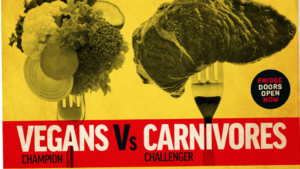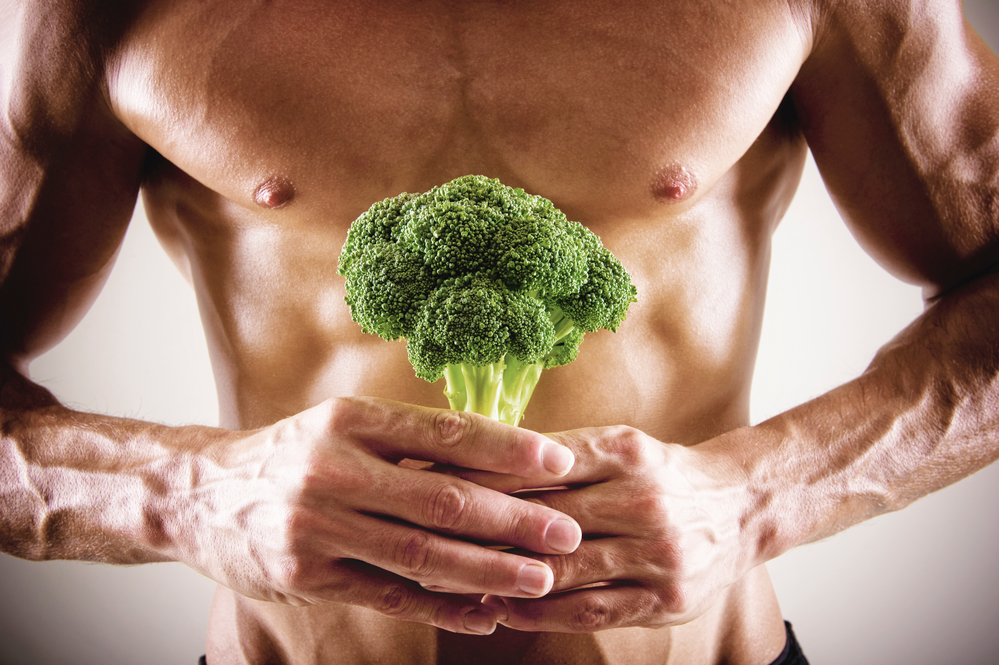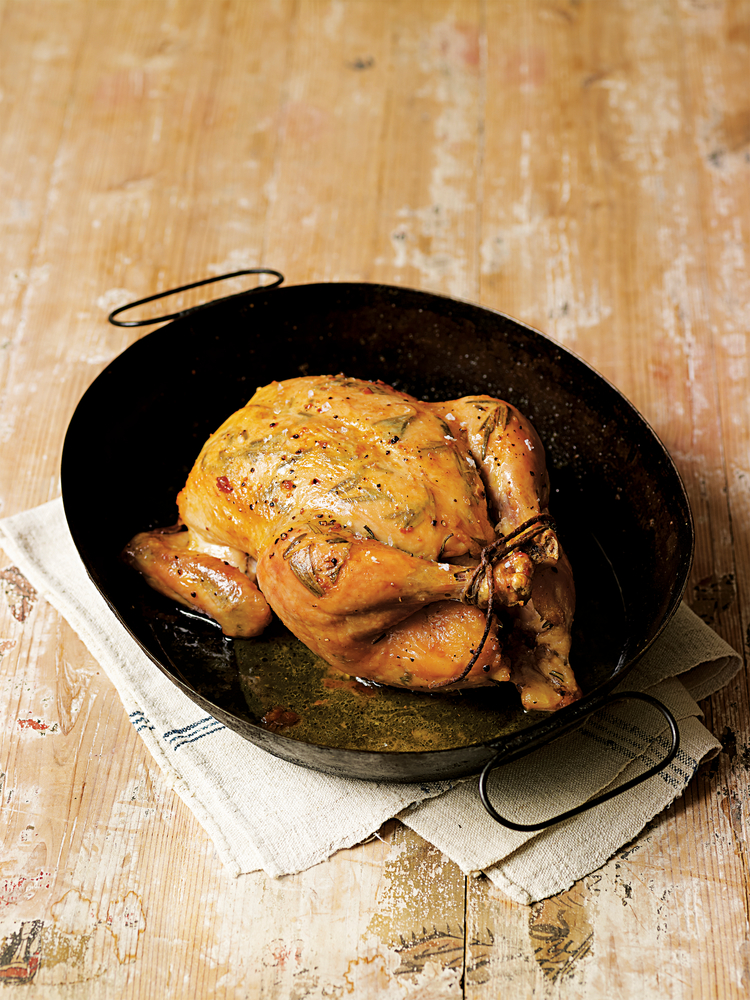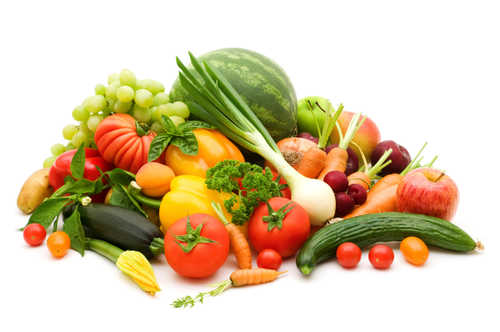
Plant-based eating is on the rise, but the fightback has started from unapologetic carnivores who claim eating meat can boost your health. Who’s right? Healthy For Men investigates
‘Eat food. Not too much. Mostly plants’ is one of the most shared bits of wisdom from the internet. Taken from The Omnivore’s Dilemma, author Michael Pollan’s mantra is aimed at simplifying the endless deluge of dietary advice that leaves most of the population hopelessly confused about what to actually eat. It’s especially popular among vegans who argue that, besides being beneficial for body composition and health, the ‘mostly plants’ part is crucial for animal welfare and the long-term wellbeing of the planet, which can’t cope with the demands of an increasingly meat obsessed, ever-growing global population.
The catch? There’s a small-but-dedicated movement arguing that the vegans have got it all wrong – that humans are more carnivorous than omnivorous, and that shifting our diets in favour of meat can cure a host of ailments. Followers of the carnivore diet at its strictest ingest nothing but meat, eggs and water, with cheese, butter and spices as optional extras. Their call to arms: ‘Eat food. Not too little. Mostly meat.’ But who’s getting it right?
To work it out, it might help to start back at the beginning. The carnivore diet, according to followers, is based on the theory that our ancestors ate mostly meat because it wasn’t energy efficient to gather a lot of fruit or vegetables. This, they claim, meant we evolved to run optimally on a meat-centric diet. ‘To the best of my knowledge, the world has yet to produce a civilisation which has eaten a vegan diet from childhood through death,’ writes nutrition consultant Dr Georgia Ede, an advocate of paleo and low-carb style dieting. ‘Whereas there are numerous examples throughout recorded history of people from a variety of cultural, ethnic and geographical backgrounds who have lived on mainly meat diets for decades, lifetimes, generations.’
The second part is certainly true. Inuits, for instance, traditionally survived on an extremely meat-centric diet, with minimal greens and berries. But the question of humankind’s eating habits over the ages is hotly contested. One research paper published in 2012 suggests that Neanderthals may have eaten much more plant material than previously thought, while some anthropologists argue that eating flesh would have required tools, teeth or cooking techniques that our early ancestors didn’t have access to, raising the question of when we actually started doing it.
Comparisons to other animals don’t help as much as you might expect, either. Meat-eating advocates often point to the fact that our jaw shape, stomach capacity and digestive activity have more in common with wolves than sheep, but it’s also true that our closest living ‘relatives’ – monkeys and apes – eat mostly fruit, nuts, leaves and insects.

Bare necessities
The only absolute requirements in the human diet are protein, fat and certain amounts of vitamins and minerals – which, carnivores believe, you can get in abundance from meat. There is some contention over whether it’s necessary to eat organs or fish to get enough healthy fats for proper brain function. It’s also worth pointing out that our ancestors would have been chasing ultra-free-range, grass-fed animals, rather than the factory-farmed kind, which can come with a radically different nutritional profile. (The nutritional structure of plants hasn’t changed as dramatically as our regular sources of meat, which have been manipulated by artificial selection.)
Phytonutrients, which are abundant in plants, are another issue: there’s evidence eating plants can help protect DNA and aid the formation of short-chain fatty acids, which may decrease risk of certain cancers. This might be one reason why meat-heavy diets have been associated with colon cancer by the World Health Organisation: it’s not the meat causing the problem, but the other stuff that the study subjects aren’t eating, too.
So what are the nutritional problems carnivores might face? Experts have suggested that meat-eaters will be consuming too much saturated fat, which could cause heart and cardiovascular problems. ‘I don’t share the “official” worries over saturated fat intake,’ says nutritionist James Collier. ‘But I’d be concerned that someone following a carnivorous diet would have a low intake of monounsaturated fat, unless they consume a lot of whole milk. If the person is consuming oily fish, then there are no concerns over omega-3 polyunsaturated intakes and, if they were eating poultry, then there may be sufficient essential omega-6 intake for “adequate” health. But there would be toolow levels of monounsaturates and omega-6s for optimal health and disease prevention.’
A meat-filled diet would also lack the dietary fibre you would normally get from plants. Collier’s concern is the risk of bowel diseases. ‘While a low-fibre diet may be useful to follow in the short term to tackle certain bowel diseases, I challenge the claim that a carnivorous diet has benefits for the bowels.’ High-protein, low-calorie diets, like a carnivorous one, are commonly associated with ripped abs and stacked guns, but that doesn’t necessarily mean it’s the healthiest option. ‘Claims of changes to body composition are not unfounded. However, this doesn’t mean they’re in line with what one should be consuming for optimal health,’ says Collier.
On the flipside of all this, it takes a bit of work to hit optimal health on vegetables alone. Our brains and bodies need omega-3 fatty acids and vitamin B12 to function, both of which can be hard to get on an unbalanced vegan diet without supplementation. Not that this is necessarily a problem. Round two: inconclusive.

Experimental factors
What about results? This is where things get vicious. Some members of the carnivore community report relief from a host of serious autoimmune and digestive problems, from Lyme disease and Crohn’s, to anxiety and depression – while others report radical weight loss or better athletic performance and body composition. The problem? For (probably) obvious reasons, there have been no research papers published on a strictly carnivore diet, so any benefits from other studies include a bit of extrapolation – while vegan diets, which have been more heavily studied, have well-documented links to fat loss and a lowered risk of heart disease.
As with the increasingly-popular ketogenic diet, going ‘zero-carb’ – as some carnivores call it – keeps blood sugar levels low at all times. You don’t get insulin spikes, so your body has no reason to store incoming calories as body fat. At the same time, going full carnivore isn’t exactly the same as eating ‘keto’ – the latter, which allows vegetables, emphasises a very high-fat intake, low carbs and moderate amounts of protein, can actually stop ketogenesis from kicking in. Still, though: a 2013 study in the journal Metabolism found that a high-fat, low-carb diet lowered inflammation in volunteers, while another study published in the American Journal Of Clinical Nutrition found that men who followed a high-fat, low-fibre diet for 10 weeks had 13% higher total testosterone than subjects who ate low fat and high fibre. But those studies weren’t conducted on people eating nothing but meat. So isn’t it risky to abandon veg entirely?
One man who doesn’t think so is Shawn Baker, an orthopaedic surgeon in his 50s. Baker claims to have eaten only animal products – mainly rib-eye steaks – for more than a year, while suffering no ill health effects and breaking indoor -rowing records. After frequently hearing the criticism that anecdotal data doesn’t count as evidence, Baker is attempting to put together a standardised, self-submitted study of carnivores who track their weight, body composition and blood markers for 90 days of carnivory at nequalsmany.com. Early results are promising, but it’s worth pointing out that no amount of three-month studies can guarantee the safety of a carnivore diet in the long run – so what are the other risks potentially related to it?
It’s tough to say. Most long-term studies on meat consumption, for instance, can’t take out confounding variables. ‘We’ve been bombarded with the information that meat is bad for us and causes disease, but this information comes from large-scale epidemiological studies that don’t take into account numerous other things that could collectively contribute to disease,’ says Matthew McEntegart, nutritional consultant and Optimal Life chef. ‘For instance, a 40-year-old man, who eats cheap steak fried in vegetable oil twice a week, works a very stressful job, drinks two pints of alcohol a day, smokes and doesn’t sleep well will have radically different results from someone who eats grass-fed meat and cuts out the other unhealthy factors.’

Closing arguments
From a health perspective, the final key claim by the followers of each philosophy is that more restrictive food options can actually lead to a more mindful attitude to food. ‘The benefits of a vegan diet obviously depend on what you were previously consuming, but most people who switch to a plant-based plan become more nutritionally aware in order to ensure an adequate nutritional intake,’ says Collier. ‘A plant-based diet also encourages a good intake of fibre.’
On the other side, meat-enthusiasts point out that going carnivore makes it very difficult to stray away from whole foods, which can be a concern with veganism. ‘It’s common to see people who turn to a vegan diet actually move further away from eating real, whole foods without even realising it, incorporating highly refined “healthy” branded vegan options, which are usually composed of low-quality ingredients,’ says McEntegart. ‘I also see vegans bulking out meals with various grains which, in context and the right amount, can be beneficial, but they certainly shouldn’t be the focus of your plate.’
But it’s easy to think that just consuming steak every day is enough to qualify as a carnivore diet, whereas the reality – for health – is a little bit more nuanced. ‘The way we prepare meat is usually very far away from the way our ancestors would have,’ says McEntegart. ‘These days we use a lot of oil-based marinades, and we fry a lot of our meats in oil. This is problematic because oils change structure when they are heated and we don’t fully know what effects they have on the body just yet, but the probability is that it has a negative impact.’
Finally, the most compelling anti-carnivore argument might not be to do with your personal health at all – instead it’s the issue of sustainability. As well as factory-farming practices that aren’t optimal for animal welfare or human health, increasing levels of meat consumption could be disastrously unsustainable for the planet, and full-blown carnivory tips the balance even further. Even if it somehow emerged that a meat-only diet really was the best option for everyone, we’d need to find a radically new way to provide it without wreaking environmental havoc.
So what’s the final verdict on the best route to follow? ‘Unfortunately we simply just don’t know whether going carnivore can be beneficial for us over a sustained period,’ says McEntegart. ‘But in my opinion, you get no benefit from adopting a vegan diet that you can’t get from any other diet or way of eating. And, in either case, people have a tendency to undertake diets like this without really doing their research, which can ultimately lead to poor food choices.’
Maybe this is the most important part of all: whether you’re vegan, carnivore, or somewhere in between, the best option is to make sure you’re eating good-quality food. ‘The key is to include plenty of quality sources of animal protein like grass-fed beef, pastured lamb, free-range organic chicken and eggs and wild-caught fish,’ says McEntegart. ‘Fill the rest of your plate with nutrient-dense vegetables like broccoli, kale, squash, sweet potato and spinach. Make sure you also get your fats from things like avocado, unheated, coldpressed oils, raw nuts and seeds. Take care in the way you prepare meat – opt for dry rubs or citrusbased marinades to flavour it, and choose fattier cuts so you can use the meat’s own fat to cook in, as opposed to adding external oils.’
If you’re going to go vegan, apply the above, but eat legumes and grains to ensure you’re getting enough protein – and consider taking vitamins B12 and D supplements. But unless you’ve got a moral objection to meat (or vegetables), then the healthiest option seems to be only a bit more complicated than Pollan’s original plan. Eat real food. Enough for your goals. Plants or animal products. Just not the processed stuff.
National wellbeing has dipped to the lowest levels since records began. But, no matter where we’re at, we can rebuild our mental and physical fortitude. One way […]
Whilst some couples will have no problems falling pregnant naturally, according to the latest NHS statistics approximately one third of couples will struggle to conceive due to […]



